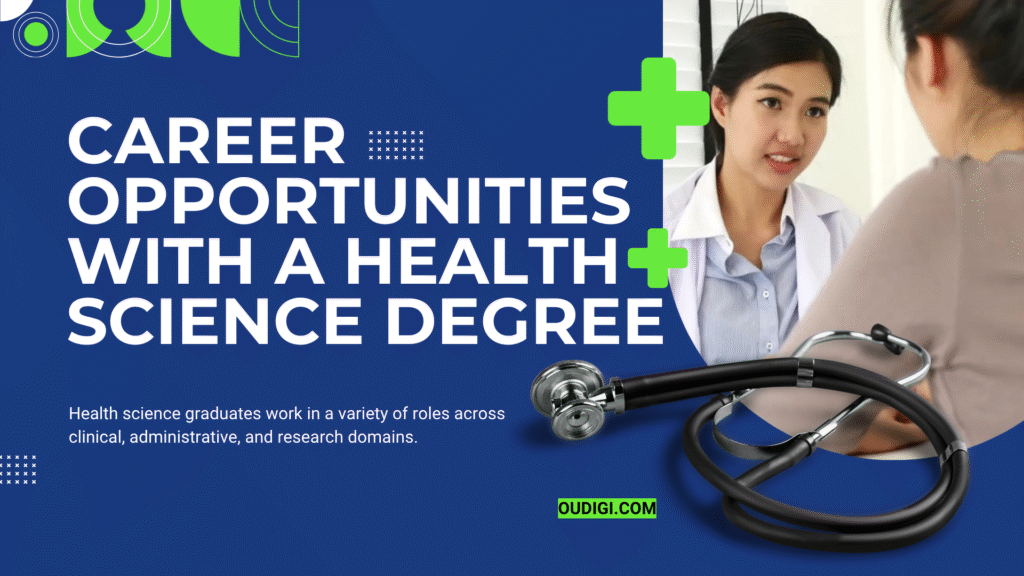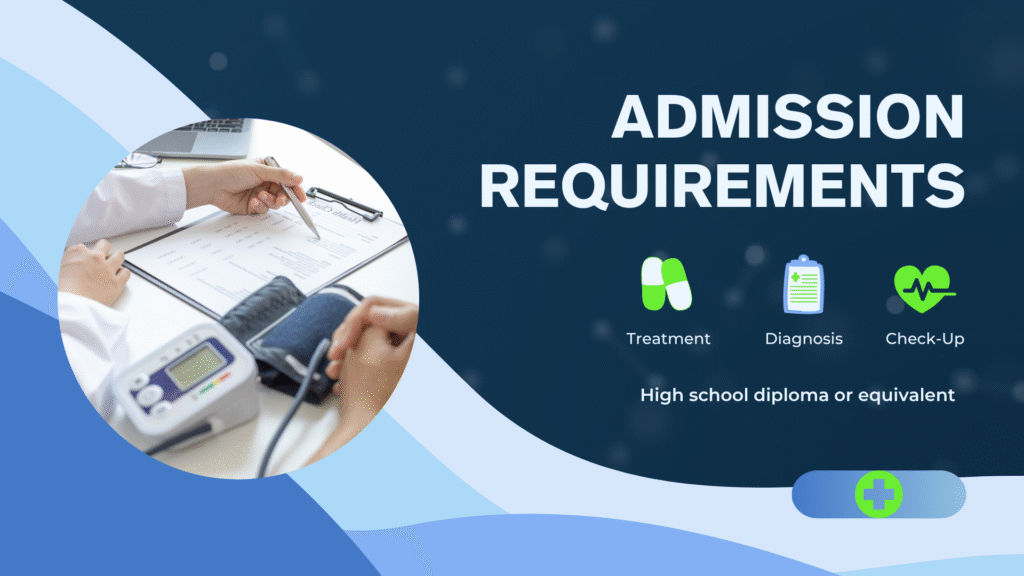Introduction to a Health Science Degree
A Health Science degree offers a multidisciplinary education in the foundations of health, healthcare systems, and wellness promotion. It is designed to prepare students for a wide range of careers in clinical, administrative, and research settings. With the healthcare sector expanding globally, this degree serves as a strategic entry point into one of the most in-demand industries of the 21st century.
What Is a Health Science Degree?
A health science degree is an undergraduate or graduate-level academic program focused on the study of health-related disciplines. The program blends biological, physical, behavioral, and social sciences with courses in healthcare policy, ethics, and public health.
Core Subjects Typically Include:
- Human Anatomy and Physiology
- Epidemiology and Biostatistics
- Health Promotion and Education
- Medical Terminology
- Healthcare Ethics and Law
- Health Informatics
- Research Methods
Why Choose a Health Science Degree?
1. Versatile Career Options
Graduates can pursue clinical roles (e.g., radiologic technologist, lab technician), non-clinical paths (e.g., healthcare management, insurance), or further studies (e.g., medical school, physical therapy, nursing).
2. Strong Industry Demand
According to the U.S. Bureau of Labor Statistics, healthcare occupations are projected to grow by 13% from 2021 to 2031, faster than the average for all occupations.
3. Foundational for Advanced Education
A bachelor’s in health science is an ideal pre-med, pre-PA (Physician Assistant), or pre-nursing program. It provides the scientific and research groundwork necessary for professional healthcare schools.

Career Opportunities with a Health Science Degree
Health science graduates work in a variety of roles across clinical, administrative, and research domains.
Clinical Careers
- Radiologic Technologist
- Respiratory Therapist
- Occupational Therapy Assistant
- Medical Laboratory Technologist
Administrative and Management Roles
- Healthcare Administrator
- Health Services Manager
- Clinical Research Coordinator
- Medical Sales Representative
Public Health and Policy
- Community Health Educator
- Epidemiologist (with advanced degree)
- Environmental Health Specialist
- Health Policy Analyst
Skills Gained Through a Health Science Program
Students develop a combination of technical, analytical, and interpersonal skills essential to the modern healthcare environment.
- Critical thinking and problem-solving
- Scientific research and data analysis
- Communication and patient interaction
- Health policy and ethics knowledge
- Leadership and team collaboration
Health Science Degree Specializations
Many universities offer concentrations to tailor the program to specific career goals:
- Public Health – Focuses on disease prevention and health promotion.
- Clinical Research – Emphasizes trial management and scientific study.
- Healthcare Administration – Prepares students for managerial roles.
- Rehabilitation Science – Designed for students pursuing physical or occupational therapy.
- Pre-Professional Studies – Ideal for students planning to attend medical, dental, or pharmacy school.
Online and On-Campus Options
Health science degrees are widely available both online and on-campus, making them accessible to working professionals or full-time students alike. Many online programs are designed for students who already have an associate degree or work experience in healthcare.

Admission Requirements
While requirements vary by institution, most programs require:
- High school diploma or equivalent
- Minimum GPA (usually 2.5 or higher)
- Standardized test scores (optional at many schools)
- Personal statement or essay
- Letters of recommendation
Is a Health Science Degree Right for You?
A health science degree is ideal for students who are passionate about health and wellness but may not want to pursue a traditional medical degree immediately. It also suits professionals aiming to advance their careers or transition into new roles in the healthcare sector.
Conclusion
A health science degree provides the knowledge, skills, and flexibility needed to thrive in the fast-evolving world of healthcare. Whether you envision yourself in clinical practice, research, or management, this degree equips you with a comprehensive foundation to make a meaningful impact in public health and beyond.
Link to authoritative sources like Bureau of Labor Statistics, CDC, or academic institutions offering health science degrees.